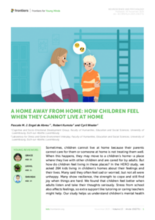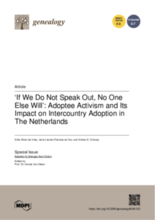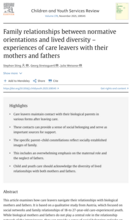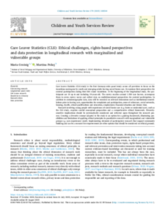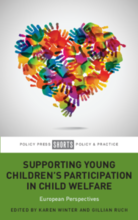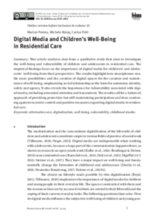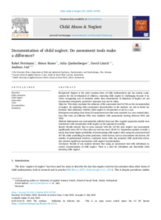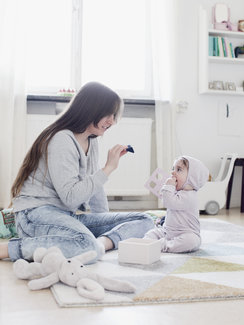

Displaying 1 - 10 of 423
This study explores how children living in children’s homes in Luxembourg experience their daily lives, revealing that while many feel sad or worried, they also demonstrate resilience and the ability to find joy. The findings highlight that children feel better when adults listen and take them seriously, and that additional support with school and caring relationships can improve their well-being.
This study examines how children in Swiss residential care perceive safety, revealing that while institutions aim to protect them, many still experience both safety and unsafety shaped by physical spaces, institutional rules, and relationships with staff. By centering children’s voices, the article highlights gaps between residential care’s protective mandate and children’s lived experiences, calling for a more nuanced, justice-oriented understanding of safety in child welfare.
This article highlights the role of adoptee activism in raising awareness and changing policy regarding Intercountry Adoption (ICA) in The Netherlands. Through interviews with a selection of adoptees engaged in activism, this study shows that adoptees became engaged in activism as a result of growing adoptee consciousness in combination with encountering irreconciliation; they employed many types of activism, sometimes with different goals and strategies; they cooperated in different constellations and with many allies such as journalists, lawyers and scholars; and their activism had significant impact on general awareness and government policy.
This article examines how care leavers navigate their relationships with biological mothers and fathers. It is based on a qualitative study from Austria, which focused on social networks and family relationships of 18-to 27-year-old care-experienced youth.
This Human Rights Watch (HRW) article reports that France is committing serious, systematic violations of the rights of unaccompanied migrant children, citing a UN body’s findings that flawed age‑assessment processes leave many children misclassif
This article presents the Care Leaver Statistics (CLS) study, the first nationwide panel study in Germany focused on young people leaving out-of-home care, like foster or residential care. It follows about 1,500 youth aged 16–19 over several years to understand their life transitions, including education, employment, housing, health, social networks, and societal participation. The study also emphasizes ethical research practices, diversity sensitivity, and participatory methods that can empower care-experienced youth.
This Policy and Practice Short has emerged from an Erasmus+ Key Action 2 project funded by the European Union (EU). The project has become known as the PANDA project, an acronym drawn from the words participation and collaboration for action, and its focus is on promoting the participation rights of young children, aged 12 and under in child welfare and child protection.
This article analyzes data from a qualitative study that aims to investigate the well-being and vulnerability of Swiss children and adolescents in residential care. The empirical findings focus on the importance of digital media for children’s and adolescents’ well-being from their perspectives.
This study examines the role of transition plans (TPs) in supporting young people leaving youth care in Flanders, identifying ownership, integrated working, and social support as key elements for effectiveness. While TPs have strong potential to guide meaningful transitions, their success depends on flexible, person-centred design and reflective professional practice that aligns with young people’s aspirations and values.
Neglect is the most common form of child maltreatment and has serious consequences for the development of children. Assessing child neglect is challenging because it involves recognizing acts of omission rather than commissions. This study examines the influence of the assessment tool SAT-BL on the documentation of neglect.

